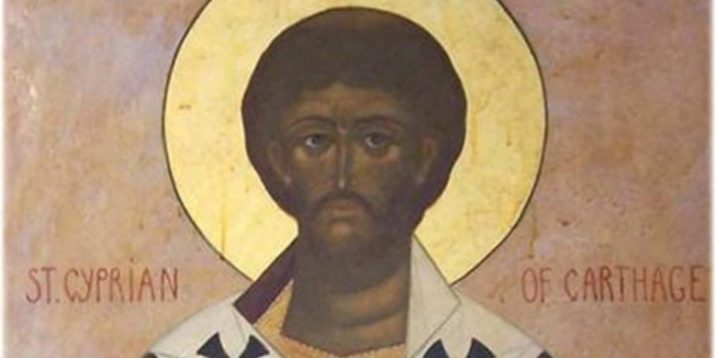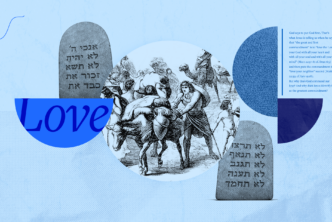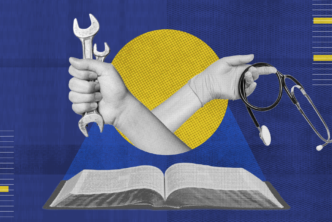By Justin Eimers
Introduction
The influence of Cyprian of Carthage is felt to this day in some of the doctrines and theologies of the Roman Catholic Church on penance and church unity. Many have believed that because of this influence Protestants can take little to nothing away from what Cyprian has to say (especially since Protestantism is a schism of Roman Catholicism). However, in doing this the Protestant church cheats itself out of understanding how the church learned both how to deal with intense pressure due to persecution, as well as a working practical theology on a unified Christianity. To do this a walkthrough of Cyprian’s ministry is necessary so that his writings may be given context and in turn meaning to a modern audience that at times is grossly disinterested to it’s ancient forbearers wisdom.
Before Decius
The church (for a time) experienced relative peace and growth from 211-250 CE.1 A brief persecution under Maximinus did take place in 235 CE but it was largely regionalized and very short lived.2 Roman policies on Christians had not changed from the time of Trajan when it had become the practice of the empire to execute Christians if they were found out.3 This being said peace was the general theme for this period as Rome was dealing with other more pressing needs. Frend puts the predicament of the Roman Empire like this, “At one time or another in the period of 235-270, Rome lost the command of the Mediterranean to Visigoths and the Heruls, saw successively the Rhine, Danube and Euphrates frontiers overwhelmed, and the barbarians press into Gaul, Spain, Greece and Asia Minor, while her currency dissolved in an inflation more in keeping with the Modern than the Ancient World.”4
Rome was in dire straights and so it is no surprise that for this period it was relatively disinterested in Christianity. This period of growth became especially prominent under Alexander Severus due to his love of philosophy and religious teachers,5 and Philip the Arab whom Eusebius seemed to think was a Christian although it was more likely because of his wife Octacila Severa’s correspondences with Origen.6 During this period under Philip as recorded by both Eusebius and Origen, the church grew immensely. In fact, the growth was so massive that Origen wrote that, “…there are not laborers enough to gather in the harvest of souls, there really is nevertheless such a great harvest of those who are gathered together and conveyed into the everywhere existing threshing-floors and Churches of God.”7
It was also at this time that Cyprian came to Christ circa 246 CE.8 His education and social standing almost immediately put him to the position of presbyter and then in 248 CE he was made Bishop of Carthage.9 This quick ascension to prominence within the Carthaginian Church garnered him some enemies within the clergy that would later come to haunt him in his ministry.10
While the Church flourished, the Empire floundered, as it would appear that Philip’s reign was not intended to last as long as Origen and others would have hoped. The economic and military situation of Rome was far from ordinary, as Philip had to levy heavy taxes on the eastern provinces in order to pay huge reparations to Sapor, which he agreed to in 244 CE.11 This in combination with mounting aggression from the Persians and Goths and his allegiance to Osrehoene (a Christian Kingdom) and Fabian Bishop of Rome soon made the Roman people as well as the frontier armies tired of Philip. In 249 CE, Philip’s army was defeated and he was killed in Verona.12 This lead to Decius’s rise to power as Emperor in 249 CE as well as a newfound persecution against the Church that was unprecedented in scope in all of the Church’s history.13
Decian Persecution
Origen in 248 CE could tell that things were not going to be as easy in the near future by writing, “And it is probable that the secure existence, so far as regards the world, enjoyed by believers at present, will come to an end, since those who calumniate Christianity in every way are again attributing the present frequency of rebellion to the multitude of believers, and to their not being persecuted by the authorities as in old times.”14
Origen in writing this unknowingly foreshadows both the intention and motive of Imperial actions for the next decade. Rome saw the church as a threat and in some cases believed it to be a direct violation of Roman power and authority as many saw it as an “imperium in Imperio”.15 Eusebius believed that Decius persecuted the Church out of his hatred for Philip.16 The more probable reason was the Decius was a devout pagan who believed that Rome’s failure to honor traditional Roman values was the reason for their failures. This meant that Decius wanted Rome and all of the empire to be following in the Roman tradition of worshiping to the government sanctioned gods of the Roman pantheon to regain their favor. It is obvious then that Decius considered the church to be a threat not just because of its organization and wealth but also because it worshipped a god that was neither sanctioned nor recognized by the empire.17
Whatever the reason in late 249 CE Decius issued an edict commanding that every citizen of Rome sacrifice to the Roman gods or face a stiff penalty. To be sure that every citizen was complying with the order Decius had certificates given to each person sacrificing so that the local authorities would know who had complied with the order and who had not. While this original edict was likely aimed at every citizen it seemed to be made to immediately affect the higher clergy of the church. Fabian (Bishop of Rome) was executed January 20, 250 for his refusal to sacrifice, and soon after province-by-province the edict swept over the empire affecting every Christian.18
Having seen this, Cyprian thought it wisest to leave Carthage and hideout somewhere outside of the city, a move that was heavily criticized. It is interesting to note that Cyprian just as the Decian edict was about to fall upon his church noticed, “Each one was desirous of increasing his estate; and forgetful of what believers had either done before in the times of the apostles, or always ought to do, they, with the insatiable ardour of covetousness, devoted themselves to the increase of their property.”19 This is a less that flattering picture of Cyprian’s flock but it appears he knew that the damage done to the church was going to be massive as Christians had become lazy and comfortable. All throughout the empire, Christians were persecuted and as a result, many turned away from the faith, some of them not even needing to be brought before the officials but sacrificing of their own free will. Cyprian writes of this lamenting in disbelief,
Immediately at the first words of the threatening foe, the greatest number of the brethren betrayed their faith, and were cast down, not by the onset of persecution, but cast themselves down by voluntary lapse… They indeed did not wait to be apprehended ere they ascended, or to be interrogated ere they denied. Many were conquered before the battle, prostrated before the attack. Nor did they even leave it to be said for them, that they seemed to sacrifice to idols unwillingly. They ran to the market place of their own accord; freely they hastened to death, as if they had formerly wished it, as if they would embrace an opportunity now given which they had always desired.20
It does not appear as though this woeful apostasy was unexpected and yet one can still sense the emotion of betrayal and disbelief in the writing of Cyprian. With the exception of a few a good majority of the church in Carthage including clergy had apostatized. While this was troubling to Cyprian his work as Bishop of Carthage was far from over as he was helping the remaining faithful smuggle goods and food into prison to abate the suffering of those who had refused to sacrifice. It appears that the Romans in this persecution did not authorize the use of deadly punishment but would only jail, starve, and torture Christians until they made the decision to sacrifice. The point of the persecution was not to exterminate Christians (as has been stated by some) but to create converts to the imperial faiths, not martyrs.21
As time went on there were an increasing number of apostates who requested to come back into the communion of the Church. During Cyprian’s absence, these individuals were allowed back into the Church with a simple certificate given to them by the “confessors” (those who had rejected sacrifice) of the faith. The confessors had begun to believe themselves important and in so doing had believed themselves worthy of the authority of forgiving sins. Cyprian at hearing this sends a letter to Carthage encouraging his flock to wait until the persecution has ended so that the bishops could convene in a council and decide whether or not the lapsi as they had come to be called could come back into the Church and under what circumstances.22 The threat of persecution decreased significantly in late 250 however due to a Vandal attack on the Danube and a little after Easter of the following year Cyprian returned to Carthage and shortly after this Decius died and with him any fervor to renew the edict of persecution.23
The Lapsed
Upon his return Cyprian fulfilled his promise to his laity and convened a council on the matter of the lapsi. The accused fell in one of two categories of which one category had two within it. The first category was the sacrificati or those who had sacrificed to the Roman gods. Another category of this, which more than likely fell to the poorer of the lapsi, was thurificati, which were those who burned incense to the gods.24 The second category was the libellaciti or those who had bought certificates without actually paying homage or sacrificing to the gods.25 The council’s decision for the libellaciti was that their punishment fit the amount of pressure they were under to buy the certificates. The sacrificati (which also includes the thurificati) might be admitted now at death if penance had been done. These orders after a year were relaxed even more.26 It is interesting to note that Cyprian does not come down on a position so firmly in that he accuses anyone of heresy in being either a laxi (those who believed that lapsed Christians should be allowed back into the community of faith with no proofs of repentance) or the rigorists (those who believed that no penance or repentance would allow the lapsed back into the fold of God).
Once more, the council also decided that if a clergyman had been found amongst the lapsed that while being readmitted to the communion of believers after a time they could not hold any office of ministry. In fact in a letter written while in exile he leaves the matter in the hands of a trusted clergyman Caldonius.27 Despite Cyprian’s grace on the matter Felicissimus, a deacon and predominant leader decided that he would create his own church, which he called the, “church on the mountain.”28 He did this under the guise of being a laxi but in reality, he was one of the clergy/laypersons who had thought that Cyprian had risen to prominence within the church too soon and saw the opportunity to take the episcopate from Cyprian. His plan backfired as while on the way to Rome he was both excommunicated in North Africa and found out by Cornelius who agreed with the African council’s decision and excommunicated him.29 Not only is there a laxi community, but in Rome also there was a rigorist community lead by Novatian.
In 254, Cornelius passed and Stephan became Bishop of Rome. Almost immediately Cyprian recognized that his comfortable relationship with Rome was likely over when he received a communication from a couple of Spanish churches that Stephan had readmitted two lapsed bishops back to their previous sees. In their letter, they ask for Cyprian’s opinion. The African Church responded by convening another council on the matter and in doing so again condemned the practice of admittance to the episcopacy those whom had lapsed from the faith.30 After the decision was reached, Cyprian and the African council sent a letter to Stephen telling him of their findings and their decision that these bishops would not be readmitted to leadership. As more time went on Cyprian’s position (regardless of 2 council losses [255, 256]) seemed all but cemented as Frend states, “The Novatianists were taught that puritanism without organization was of no avail, and Stephen was left in no doubt that the tradition of the African Church was now irrevocably that of the Elect opposing the world and its allies.”31 Not only this but Cyprian also had in agreement with his position the Eastern Church represented by Firmilian of Cappadocia, and Dionysius of Alexandria.32 Through this controversy, Cyprian does something almost completely new with his ecclesiology and according to Harnack through Taylor’s observation; “The practice of absolving these sinners was according to him, a gradual growth which marked a fundamental change in the very concept of the Church.”33
On Unity
Cyprian now has two communities claiming to be the true church. Both communities have left the Catholic Church due to doctrinal differences on how to deal with the issue of the lapsi. What is interesting is that Cyprian had allowed for flexibility in the exercise of these new policies on the lapsed so it is more likely that these schisms are more politically motivated than spiritually motivated. Cyprian in dealing with Novatian in particular he writes his treatise “On the Unity of the Church”. In this Cyprian lays out just how damaging a schism is and why those who reject the Church reject God. Cyprian in this treatise makes a statement that has resonated with Roman Catholics and Protestants alike. In it he states, “He can no longer have God for his Father, who has not the Church for his mother.”34 These powerful words force all Christians to look at whether or not they can be a Christian apart from God’s people. In his treatise Cyprian also uses Matthew 12:30 as Jesus says, “Whoever is not with me is against me, and whoever does not gather with me scatters.” For Cyprian this made the matter relatively clear, those who stood against Christ’s Church stood against him and as a result, they would scatter.
Cyprian does not stop here however but also condemns those who are taking part in these schisms but he comes down even harder on those leading these schisms (like Novatian) by writing, “And does any one believe that this unity which thus comes from the divine strength and coheres in celestial sacraments, can be divided in the Church, and can be separated by the parting asunder of opposing wills? He who does not hold this unity does not hold God’s law, does not hold the faith of the Father and the Son, does not hold life and salvation.”35 For Cyprian the preservation of the unity of the Church is a sacred duty of every Christian and for Christians to break that unity is to break themselves away from God himself.
Cyprian knowing his adversary moves to his next point, which is actually a rebuttal of an argument that Cyprian is expecting. In this he brings up Matthew 18:20 which reads, “For where two or three are gathered in my name, there am I among them.” Cyprian then calls for the schismatics to read the verse within its proper context saying to them, “Corrupters and false interpreters of the Gospel quote the last words, and lay aside the former ones, remembering part, and craftily suppressing part: as they themselves are separated from the Church, so they cut off the substance of one section.”36 Verse 19 before 20 states, “Again I say to you, if two of you agree on earth about anything they ask, it will be done for them by my Father in heaven.” Here again we see the craftiness of Cyprian as he points out that unity in Christ is a prerequisite for the presence of God and since they (the Novatianists) had broken off from the one true Church they in reality were apostates of the faith themselves. By 255 CE, the Novatianists requested to be brought back into the Catholic Church.37
Conclusion
At the end of it all Cyprian in 258 CE was martyred in the persecution under Valerian.38 It was a life well lived and a ministry well served. In just ten years Cyprian changed how the church both saw itself in terms of how it forgave its congregates and gained a new and affective weapon in battling those who wished to break away from the Church and create their own schism. The question out of all of this however is regarding what this says to the modern Evangelical Church. In retrospect, perhaps Cyprian’s understanding of penance and repentance should be taken to heart.
Another lesson that can be learned is from the Carthaginian Church’s massive apostasy. The Church at that time had been at relative peace for almost 40 years with the exception of a minimal persecution here or there. The American Church has been as peace for far longer. Is it equipped to disciple Christians in a way that if something were to happen and a massive persecution of Christians occurred that there wouldn’t be a massive apostasy? These questions are ones that need to be pondered by the American Church. With the ever increasing hostility of American culture against orthodox Judeo-Christian faith it is time that the Church not be lazy but do as Origen said, “…we have learned from the Gospel neither to relax our efforts in days of peace, and to give ourselves up to repose, nor, when the world makes war upon us, to become cowards, and apostatize from the love of the God of all things which is in Jesus Christ.”39
The last lesson to take from Cyprian is the importance of Christian unity. While the Church today looks very different from the early church in which Cyprian lived, it is still important that she come together in love and unity. This may not be accomplished in a complete communion of doctrine and theology but can occur in service to each other and our neighbors. If the church does these simple things, it will find itself in a state far more prepared for the realities of hardship than it currently is.
Bibliography
A Select Library of the Nicene and Post-Nicene Fathers of the Christian Church, Second Series, Volume I: Eusebius: Church History, Life of Constantine the Great, and Oration in Praise of Constantine. Edited by Schaff, Philip and Henry Wace. New York: Christian Literature Company, 1890.
Decret, François. Early Christianity In North Africa. Translated by Edward Smither. Eugene, OR: Cascade Books, 2009.
Ferguson, Everett. Church History Volume 1: From Christ to the Reformation. Grand Rapids, MI: Zondervan, 2005.
Foster, John. The First Advance: Church History 1, AD 29-500. Edited by W.H.C. Frend. London, UK: Society for Promoting Christian Knowledge, 1991.
Frend, W.H.C. Martyrdom and Persecution in the Early Church. Cambridge, UK: James Clark and Co. Ltd, 2008.
Hall, Christopher A. Learning Theology with the Church Fathers. Downers Grove, IL: IVP Academic, 2002.
Hart, Trevor A. The Dictionary of Historical Theology. Carlisle, Cumbria, U.K.: Paternoster Press, 2000.
Roldanus, Johannes. “No Easy Reconciliation: St. Cyprian On Conditions for Re-Integration of the Lapsed.” Journal of Theology for South Africa, no. 92 (Spring, 1995): 23-31.
Taylor, John Hammond. “St. Cyprian and the Reconciliation of Apostates.” Theological Studies 3, no. 1 (Fall, 1942): 27-46.
The Ante-Nicene Fathers, Volume IV: Fathers of the Third Century: Tertullian, Part Fourth; Minucius Felix; Commodian; Origen, Parts First and Second. Edited by Roberts, Alexander, James Donaldson and A. Cleveland Coxe. Buffalo, NY: Christian Literature Company, 1885.
The Ante-Nicene Fathers, Volume V: Fathers of the Third Century: Hippolytus, Cyprian, Novatian, Appendix. Edited by Roberts, Alexander, James Donaldson and A. Cleveland Coxe. Buffalo, NY: Christian Literature Company, 1886.
- Everett Ferguson, Church History Volume 1: From Christ to the Reformation, (Grand Rapids, MI: Zondervan, 2005): 160. Roldanus puts this closer to 215-249 CE, Johannes Roldanus, “No Easy Reconciliation: St. Cyprian On Conditions for Re-Integration of the Lapsed,” JTSA, no. 92 (Spring, 1995): 24.
- W.H.C Frend, Martyrdom and Persecution in the Early Church (Cambridge, UK: James Clark and Co. ltd, 2008): 390.
- Ferguson, Church History, 160.
- Frend, Martyrdom, 389.
- Ferguson, Church History, 160.
- Frend, Martyrdom, 397.
- Origen, Origen Against Celsus 1.43 (ANF 4:415).
- Trevor A. Hart, The Dictionary of Historical Theology (Carlisle, Cumbria, U.K.: Paternoster Press, 2000): 144.
- Ferguson, Church History, 164.
- Hart, The Dictionary of Historical Theology, 144.
- Hart, 404.
- Hart, 404.
- Johannes Roldanus, “No Easy Reconciliation: St. Cyprian On Conditions for Re-Integration of the Lapsed,” JTSA, no. 92 (Spring, 1995): 24.
- Origen, Origen Against Celsus 3.15 (ANF 4:470).
- John Foster, The First Advance: Church History 1, AD 29-500, ed. W.H.C. Frend (London, UK: SPCK, 1991): 78.
- Eusebius, H.E. 6.39.1 (NPNF2 1.280).
- François Decret, Early Christianity In North Africa, trans. Edward Smither (Eugene, OR: Cascade Books, 2009): 49-50.
- Decret, 50.
- Cyprian of Carthage, On the Lapsed 6 (ANF 5:438).
- Cyprian of Carthage, On the Lapsed 7-8 (ANF 5:438-439).
- Decret and Smither, Early Christianity, 54.
- Christopher A. Hall, Learning Theology with the Church Fathers (Downers Grove, IL: IVP Academic, 2002): 235.
- Decret and Smither, Early Christianity, 55.
- Decret and Smither, 51.
- Decret and Smither, 52.
- Frend, Martyrdom, 416.
- Cyprian, Epistle 18 (ANF 5: 297).
- Decret and Smither, Early Christianity, 57.
- Decret and Smither, Early Christianity, 57.
- Decret and Smither, Early Christianity, 60.
- Frend, Martyrdom, 421.
- Frend, Martyrdom, 421.
- John Hammond Taylor, “St. Cyprian and the Reconciliation of Apostates,” TS 3, no. 1 (Fall, 1942): 28.
- Cyprian of Carthage, On the Unity of the Church 6 (ANF 5:423).
- Cyprian of Carthage, On the Unity of the Church 6 (ANF 5:423).
- Cyprian of Carthage, On the Unity of the Church 12 (ANF 5:425).
- Decret and Smither, Early Christianity, 58.
- Frend, Martyrdom, 427.
- Origen, Origen Against Celsus 3.15 (ANF 4:470).





